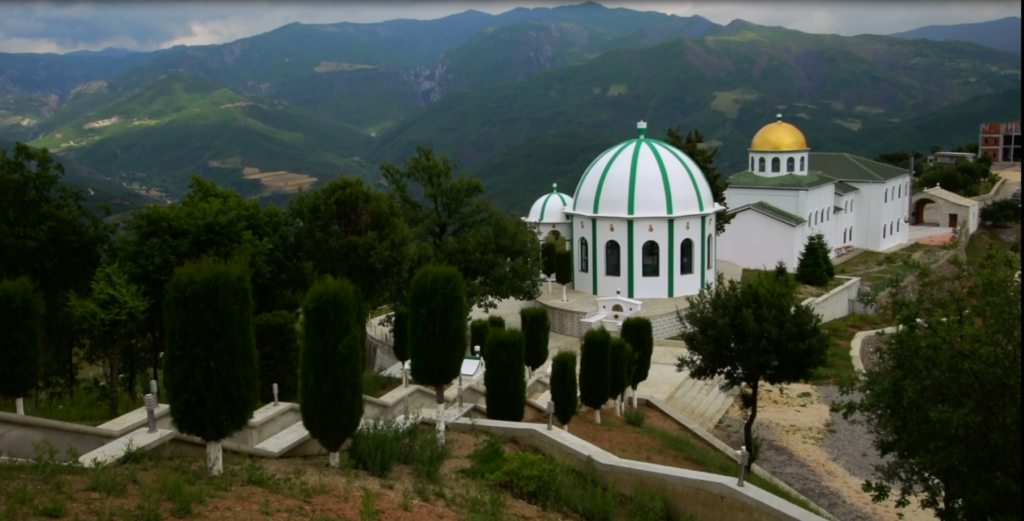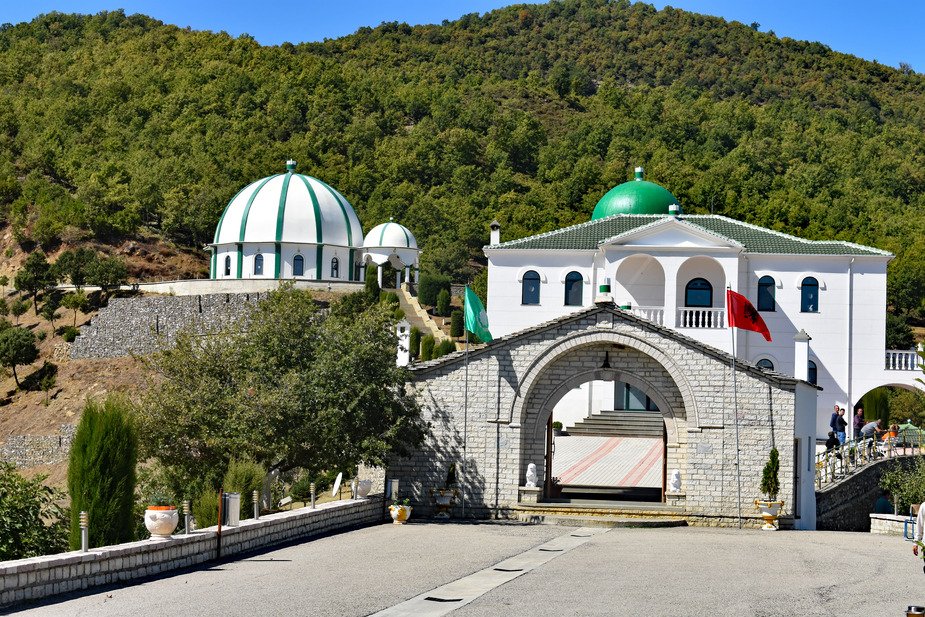
Today, is commemorated the 161st anniversary of the founding of the famous Alipostivan tekke in Përmet. Alipostivan tekke is built on a dominant hill overlooking the Vjosa valley and Nemërcka mountain, in the village of Alipostivan, part of the Center Administrative Unit, Piskovë, Përmet Municipality.
On a beautiful hill, the tekke is surrounded by oak and other greenery and other trees. Historically, the early missionary, Father Ali, came here and spread Bektashism in the beginning. It was founded as a tekke by Abdullah Babai. An average tekke may have been built around 1860 and depended on Gjirokastra’s Dedelik. Abdullah Babai and father Dule Përmeti, have supported and participated in all movements and rallies for the Albanian language in the years (1908 – 1909). They have served for years in this tekke, father Meleqi, father Hyseni, father Hajdari, father Nazifi, etc.… This tekke has played an important role in the spread of Bektashism in the area of Deshnica and the border villages of Skrapar. The history of the Alipostivan tekke is also related to the close cooperation with the Frashër tekke. Its history is known for the preservation and development of Bektashi traditions. It was burned by the Greek andartes in 1914 and rebuilt in 1920. In the years 1955-1956, father Hajdar Hodo and dervish Selfo Mersini served in this tekke. In 1963, father Hajdar Xhafer Kajo served and in 1967, father Hajdar Hado and dervishes Qamil Metushi. It was closed by the monist state in 1967. It was reopened in May 2003. It has recently been rebuilt and restored and today, this magnificent and complete building with all its functional facilities, where the new building stands out. Shrine and tekkes with the surrounding nature, create one of the special beauties in the Vjosa valley. It is a wonder of nature and tekke with its surroundings. It has been completely rebuilt by father Hekuran Nikollari, who runs this important Bektashi facility.

